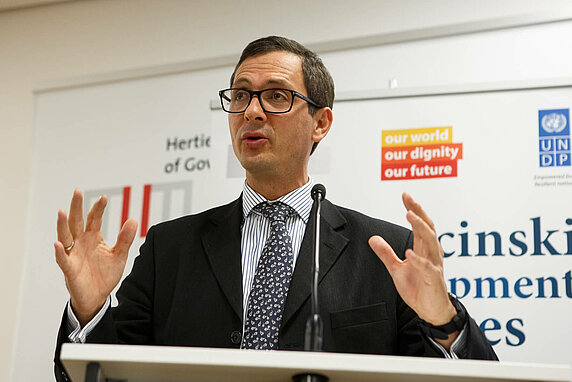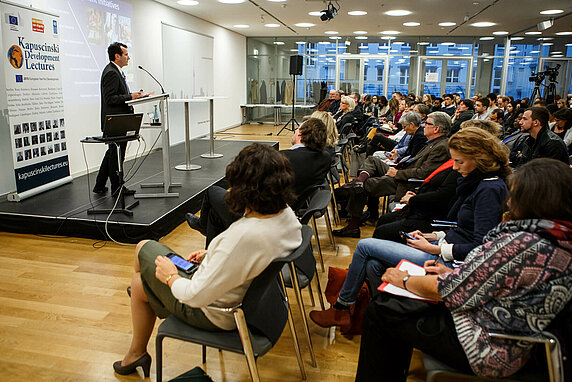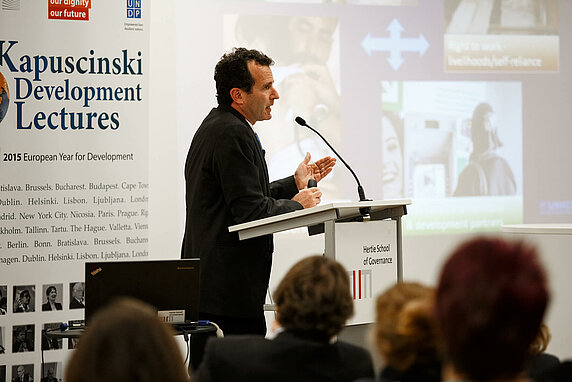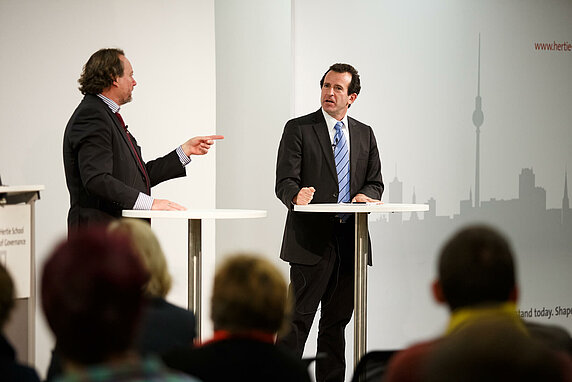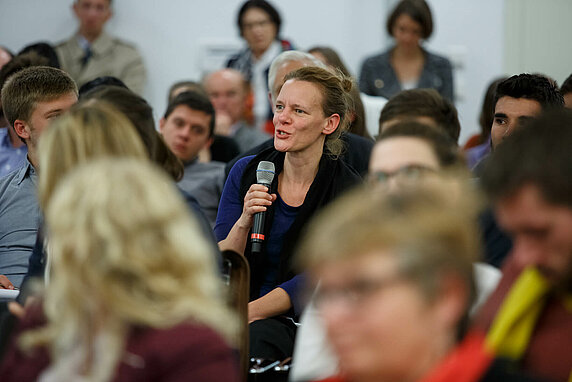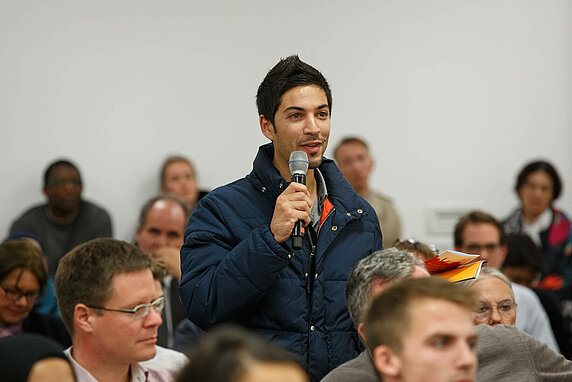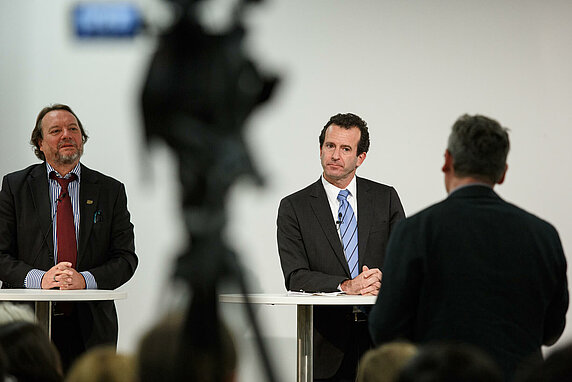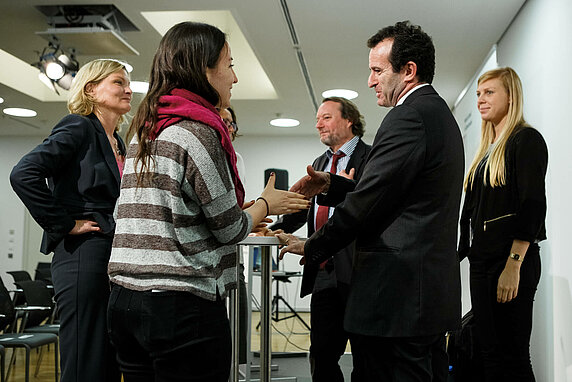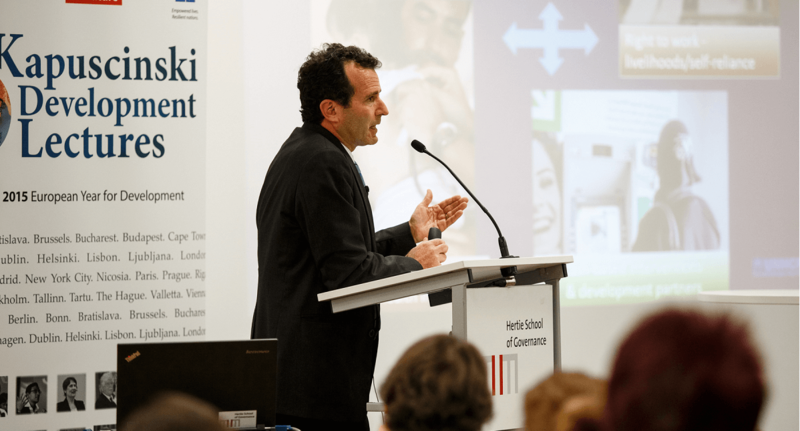
The Kapuscinski Development Lecture was held by Paul Spiegel, Deputy Director of the Division of Programme Support and Management at the United Nations High Commissioner for Refugees (UNHCR).
There are currently more refugees globally than at any time since WWII. Syria accounts for the world’s largest number of refugees and internally displaced persons (IDPs). The manner in which the international community is currently funding and responding to humanitarian emergencies is no longer sufficient for achieving its intended purposes; it can no longer cope with the magnitude and accelerating number of complex emergencies. Development and humanitarian organisations and donors need to rethink the ways they provide assistance to refugees.
The presentation by Paul Spiegel highlighted why refugees need to be integrated into the labour market of their host nation as soon as possible. He also explored why they should receive cash as opposed to in-kind assistance when appropriate, and gain access to national health systems including the possibility of having health insurance. The development of new financing schemes that combine humanitarian and development funding is an essential step forward, he added. Examples of Syrian refugees in neighbouring countries were used to illustrate these points.
The lecture was a joint initiative of the European Commission, the United Nations Development Programme and the Hertie School. The project was funded by the European Commission. The Berlin Kapuscinski Development Lecture was part of the European Year for Development and was hosted in partnership with the World Health Summit.
Welcome and commentary:
Helmut K. Anheier (Dean and President, Hertie School)
Richard Kühnel (Head of Representation, European Commission Representation in Germany)
Katarzyna Czaplicka (Kapuscinski Development Lectures, UNDP Europe and Central Asia)
About the Kapuscinski Development Lectures
Top global thinkers discuss development in European Union countries in this lecture series. The series Kapuscinski Development Lectures, named after Ryszard Kapuscinski, a Polish reporter and writer whose work covered events in developing countries, is organised jointly by the European Commission, the United Nations Development Programme and partner universities and development think-tanks. Since 2009, there have been over 50 lectures which have drawn over 10,000 participants. From October 2014 to December 2015, the lectures organised in all EU member states contributed specifically to development policy debates as part of the European Year for Development 2015.
The lecture series offers students from EU member states an unprecedented opportunity for learning about and discussing development issues such as climate change, human rights, aid effectiveness, Europe-Africa relations and Millennium Development Goals (MDGs). The prestigious events contribute to the debate surrounding, and formulation of, European development policy. The lectures can be live streamed at http://www.kapuscinskilectures.eu and their content is shared on this website.
As mentioned above, the lectures honour the name of the late Ryszard Kapuscinski, who died in 2007. Kapuscinski, whose books were translated into many languages, was often named the “third world chronicler” or the “voice of the poor” for his famous articles and books describing issues faced in developing countries in each continent. Among his other books, he was most famous for The Emperor, a book on Ethiopia, Shah of Shahs about Iran, The Shadow of the Sun about Africa, Another Day of Life about Angola, and Imperium about the Soviet Union.

